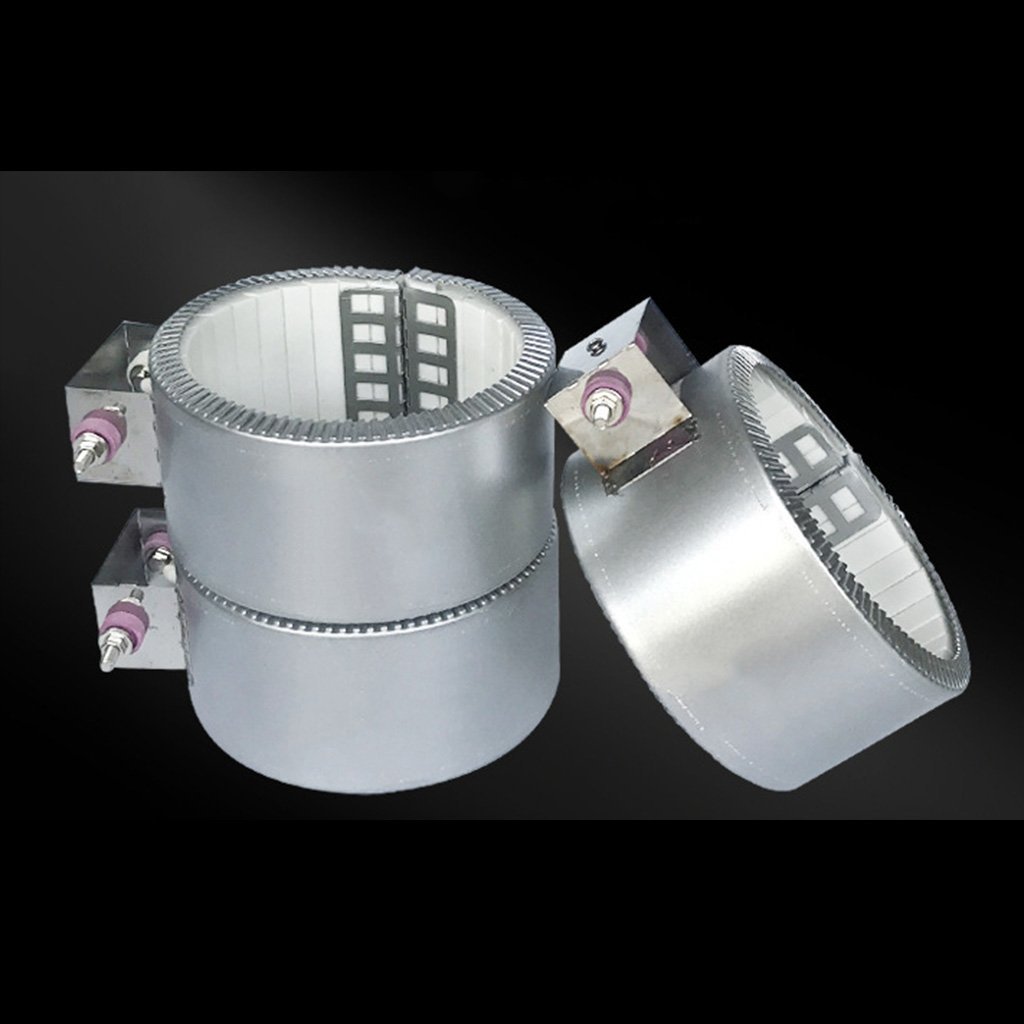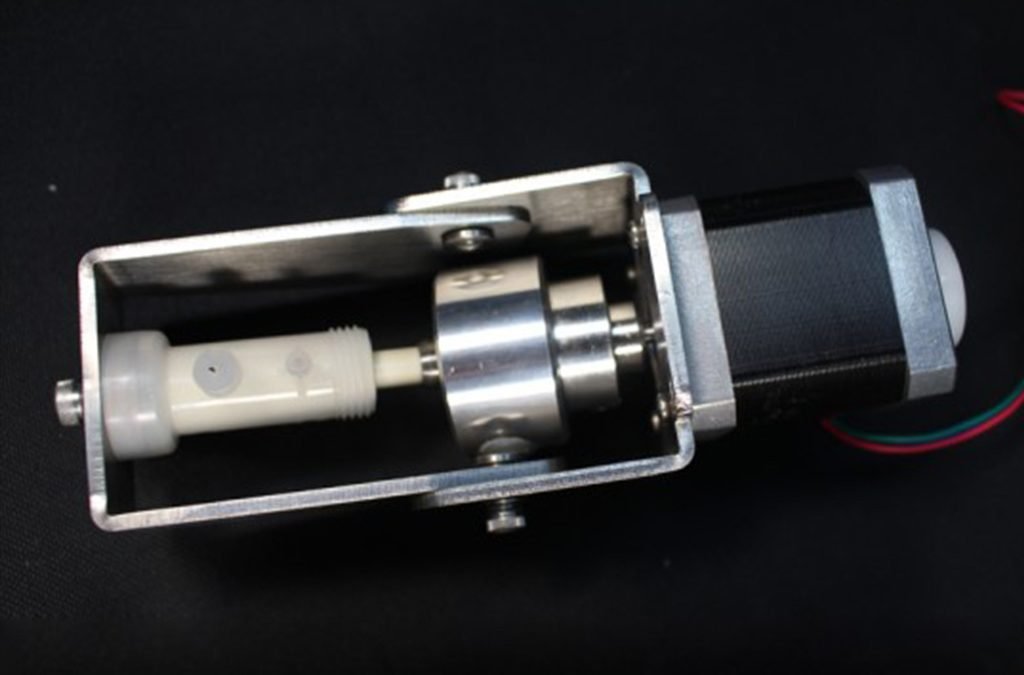Alumina industrial ceramics properties: sealing anti-wear, high temperature, high pressure, hardness, insulation, thermal conductivity, corrosion resistance, acid and alkali resistance, relatively low raw material prices, easy to refine and so on.
Below for the different properties of alumina industrial ceramics can be used in which practical applications to develop the narrative:
Sealing Anti-wear:
1, pumps and valves:
alumina seals can be used for pumps and valves in the sealing system. Its high hardness and low coefficient of friction so that it has excellent sealing performance, and can resist high pressure and high temperature conditions of wear.
2, the automotive industry:
aluminum oxide seals can be used in automotive engines and transmission system seals. Due to the harsh working environment of automobile engines and transmission systems, seals are required to have high temperature resistance, wear resistance and chemical corrosion resistance, alumina seals can meet these requirements.
3, chemical and petroleum industries:
alumina seals can be used in the chemical and petroleum industries, pipelines, tanks and equipment. The fluids in these industries are usually high-pressure, high-temperature and corrosive, alumina seals can provide reliable sealing performance and abrasion resistance to ensure the safe and reliable operation of the system.
4, high-temperature kilns:
alumina seals can be used in high-temperature kilns in the doors, ports and connections of the seal. High-temperature kilns in the environment requires seals to withstand high temperatures and thermal shock, and maintain good sealing performance, alumina seals have excellent high-temperature resistance and thermal stability.
5, electronics and semiconductor industry:
alumina seals can be used in electronic and semiconductor equipment sealing applications, such as vacuum systems, packaging equipment. Alumina seals can provide reliable sealing performance to prevent gas and liquid leakage, and at the same time has good electrical insulation properties.




High Temperature and High Pressure Resistance:
1, heat treatment and smelting industry:
alumina industrial ceramics can be used as linings and insulation materials for heat treatment furnaces, smelting furnaces and other high temperature industrial equipment. Due to its high melting point and excellent thermal stability, alumina can withstand high-temperature environments and maintain structural stability.
2, high-temperature heat transfer equipment:
alumina industrial ceramics can be used for high-temperature heat transfer equipment, such as heat exchangers, tube bundles and burner linings. In these devices, the high temperature resistance of alumina can ensure the efficiency of heat transfer, and resistance to high temperature and thermal shock caused by damage.
3, aerospace industry:
alumina industrial ceramics can be used in the aerospace field of high temperature and high pressure applications, such as jet engine combustion chamber and turbine blades. Alumina’s resistance to high temperatures and thermal shock enables it to maintain structural stability and reliability under extreme operating conditions.
4, high-pressure gas and liquid systems:
alumina industrial ceramics can be used for high-pressure gas and liquid system seals and valves. Its high pressure resistance can ensure the safe operation of the system, and prevent leakage and failure.
5, nuclear energy industry:
alumina industrial ceramics can be used in nuclear reactors in the structural materials and thermal insulation materials. In the nuclear energy industry, alumina can withstand high temperatures and radiation, and maintain structural stability and radiation protection properties.
Insulation Thermal Conductivity:
1, electronics and semiconductor industry:
due to the high insulating properties and electrical insulation properties of alumina, it is often used as an insulating material for electronic and semiconductor devices. For example, alumina can be used in integrated circuits in the insulating layer, capacitors and insulating substrates and other parts.
2, power industry:
alumina industrial ceramics can be used in the power industry in the insulating parts and high-voltage equipment. For example, alumina insulators can be used in high-voltage transmission lines and substations, and its thermal conductivity can help dissipate heat and improve the efficiency of the equipment.
3, thermoelectric industry:
alumina industrial ceramics can be used in thermoelectric power generation device insulation and thermal conductivity materials. In the thermoelectric device, alumina can provide good insulation properties, while effectively transferring heat through thermal conductivity, improve energy conversion efficiency.
4, environmental engineering:
alumina industrial ceramics can be used in the field of environmental engineering insulation and heat-resistant materials. For example, in high temperature and corrosive environments, alumina insulating materials can be used in flue gas desulfurization devices and chemical processing equipment and other parts.
5, high temperature kiln:
alumina industrial ceramics can be used in high temperature kilns in the heat insulation layer and insulation materials. Its insulating properties can prevent heat loss, and thermal conductivity can help quickly conduct heat and improve the efficiency of the kiln.




Corrosion Resistance Acid and Alkali Resistance:
1, chemical industry:
alumina industrial ceramics can be used in the chemical industry for corrosive media handling and storage equipment. Because of its acid and alkali resistance, alumina can be used to manufacture storage tanks, pipelines, reactors and other equipment working in acid and alkali environments.
2, battery manufacturing:
alumina industrial ceramics can be applied to corrosion-resistant components in battery manufacturing. In the battery, acidic or alkaline electrolyte may cause corrosion of the material, and the corrosion resistance of alumina makes it ideal for use in parts such as battery diaphragms, electrolytic tanks and electrodes.
3, medical equipment:
alumina industrial ceramics can be used for medical equipment in the corrosion-resistant materials. In the medical field, some liquid or chemical substances may have a corrosive effect on the equipment materials, and the corrosion resistance of alumina makes it suitable for the manufacture of surgical instruments, implants and reagent containers and other medical equipment.
4, environmental engineering:
alumina industrial ceramics can be used in environmental engineering corrosion-resistant materials. For example, in sewage treatment plants and exhaust gas treatment devices, alumina can be used to manufacture acid and alkali resistance and corrosion-resistant equipment and components to deal with corrosive media.
5, food processing industry:
alumina industrial ceramics can be used for corrosion-resistant equipment and containers in the food processing industry. Because of its resistance to acids and alkalis, alumina can be used to manufacture food processing equipment, storage containers and reactors.
With the rapid development of modern technology refining technology, alumina industrial ceramics raw material refining costs have fallen dramatically for the need to use alumina industrial ceramics industry is very advantageous, alumina ceramics also has a strong plasticity, according to the actual need to customize a variety of sizes and specifications of the shape of the parts/components.
PREGUNTAS FRECUENTES
¿Pueden facilitarme muestras para que las pruebe? ¿Cuánto cuesta?
Nos esforzamos por proporcionarle muestras de cerámica que se ajusten lo mejor posible a sus requisitos.
En las muestras son totalmente gratuitaspero tienes que pagar el flete.
Para muestras con formas únicas que requieran moldes personalizados, estamos abiertos a discutir el coste del molde para adaptarnos a sus necesidades específicas.
No sabemos qué material de cerámica necesitamos, ¿qué debemos hacer?
No te preocupes. Facilítenos más detalles sobre sus necesidades, como el uso previsto, las propiedades deseadas y cualquier característica específica que esté buscando.
Con esta información, nuestro equipo puede guiarle en la selección del material cerámico más adecuado a sus necesidades.
Nos preocupa la calidad del producto que hemos pedido.
Comprendemos sus preocupaciones y mantenemos estrictas normas de control de calidad como las siguientes:
| Norma de ensayo | Dimensión de la prueba | Porcentaje de aprobados | Gama estándar |
|---|---|---|---|
| Inspección de Aspecto | Cantidad y gravedad de los defectos | ≥ 97.3% | Determinado por la norma AQL |
| Inspección dimensional | Precisión y coherencia del tamaño | ≥ 98.1% | Determinado por la norma ISO 9001 |
| Pruebas de densidad | Densidad del material | ≥ 97% | Determinado por la norma ASTM C20 |
| Pruebas de dureza | Dureza de la superficie | ≥ 98.2% | Determinado por la norma ISO 6508 |
| Pruebas de resistencia a la flexión | Resistencia a la flexión del material | ≥ 97.9% | Determinado por la norma ASTM C1161 |
| Pruebas de estabilidad al choque térmico | Material Estabilidad al choque térmico | ≥ 98,7% | Determinado por la norma ASTM C884 |
*Normas de cualificación superiores a las normas ISO
Además de las inspecciones de la línea de producción, también aceptamos inspecciones de organizaciones externas varias veces al mes.
Aunque la aparición de defectos es extremadamente rara, es una posibilidad inevitable. Si surge algún problema de calidad, asumimos toda la responsabilidad y agilizaremos el proceso de reproducción a precio de coste.
Nuestro compromiso es garantizar que nuestros productos cumplen las normas de calidad más exigentes y resolver con prontitud cualquier duda para garantizar la satisfacción del cliente.
¿Cuál es la precisión de procesamiento de la cerámica?
| Requisitos de precisión | Ejemplo | Unidad |
|---|---|---|
| Planitud de la superficie | Ra ≤ 0,1 μm | μm |
| Precisión dimensional | Tolerancia en decenas de μm | μm |
| Precisión de apertura | Tolerancia de diámetro dentro de unos cientos de μm | μm |
| Acabado superficial | Ra ≤ 0,2 μm | μm |
Mantenemos estrictas normas de precisión en el procesamiento, lo que garantiza que nuestros productos cumplen la mayoría de los requisitos mediante nuestros procesos de fabricación estándar.
Sin embargo, si necesita productos de mayor precisión, no dude en ponerse en contacto con nosotros.
Podemos hablar de sus requisitos específicos y estudiar soluciones personalizadas que cumplan sus normas más exigentes.
¿Cuáles son sus condiciones comerciales?
Preferimos EXW, FOB y CIF en cuanto a plazos.
T/T, West Union,30% depósito, 70% saldo pagado antes de la entrega son muy apreciadas.
¿Cuánto dura su producción?
P: ¿Cuál es el plazo de producción habitual de Vhandy Ceramics?
R: El plazo de producción típico de Vhandy Ceramics es de 15 a 20 días.
P: ¿Hay situaciones en las que el plazo de entrega real pueda ser mayor?
R: Sí, en algunos casos, como los envíos a países lejanos, el plazo de entrega real puede prolongarse más allá del plazo estándar.
P: ¿Qué factores pueden contribuir a alargar los plazos de entrega?
R: Factores como los trámites aduaneros, la logística del transporte y los acuerdos de envío internacional pueden contribuir a alargar los plazos de entrega.
P: ¿Cómo gestiona Vhandy Ceramics los posibles retrasos?
R: Vhandy Ceramics se esfuerza por minimizar los posibles retrasos y trabaja en estrecha colaboración con los socios de envío para agilizar el proceso siempre que sea posible.
P: ¿Puedo obtener una estimación exacta de la entrega de mi pedido?
R: Sí, nuestro equipo de atención al cliente puede facilitarle un plazo de entrega estimado en función de su pedido y ubicación concretos. También le mantendrán informado durante todo el proceso de producción y envío.
Póngase en contacto con
*Tus datos no se compartirán con terceros.
Shenyang Vhandy Technology Co., Ltd.
Sala 401, Bloque D11 (Parque Internacional de Software de Shenyang), Shenyang, Liaoning, China
Correo electrónico
Teléfono/WeChat/WhatsApp
Tel
0086-24-31501218

